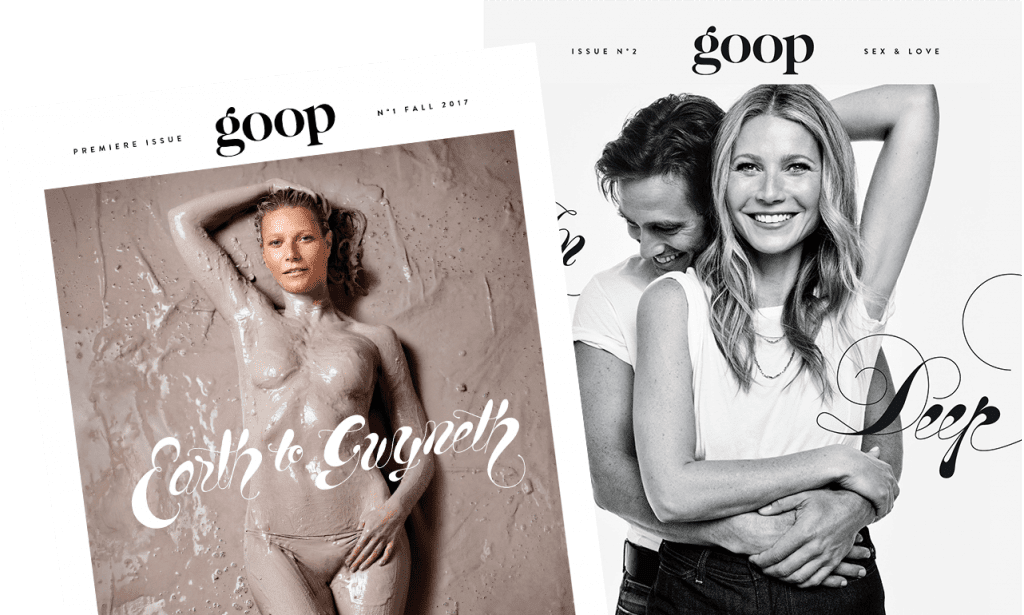When digital media entrepreneur Andrew Keen predicted in 2007 that the user generated focus of Web 2.0 would lead to a reduction of well-researched and factually-oriented information – and in turn, give rise to a large-scale influx of amateur opinion – he was clearly on to something. Over a decade later, Keen’s prognosis has, arguably, come true. Look no further than social media and the evidence is there.
Today, the internet today is a source of seemingly endless amounts of easily digestible material. Countless people contribute to its “factual” information, and promote their own opinions as facts, too. Through Facebook, Twitter and Instagram, people – particularly celebrities and influencers – are also able to promote products and ideas in a much more immediate and visual way. And to frame or reinvent themselves as experts in completely different areas than the ones they gained fame in.
While people have long modelled and promoted fashionable clothing, for example, a number of celebrities have taken this idea further in the past ten years. They have broken away from the activities that made them famous – acting, singing, or sport – and reinvented themselves as business people. They are now more than just promoters of certain products, nor those whose style should merely be copied. They are the “go to” for fashionable lifestyles.
That celebrities are moving into business is not such a surprise. Yet, the way in which they adopt expertise in matters on which they have no training is a new twist in the rise of the amateur. Child stars Mary-Kate and Ashley Olsen and Spice Girl Victoria Beckham are now celebrated fashion directors, for example, and actress Gwyneth Paltrow is a lifestyle and “health” guru. When Beckham first launched her clothing line in 2008, fashion editors – and retail buyers – were skeptical. Despite no apparent training in design – her initial “expertise” in this matter came from her personal interest in clothing and the frequency with which she was photographed wearing fashionable clothes. The years alter, Beckham is celebrated as a bona fide fashion figure.
Kanye West can be lumped into this camp thanks to his wildly successful Yeezy collection, and Louis Vuitton menswear director, Virgil Abloh, an architect by training and DJ by trade, comes from a similar place. A lack of design training has not kept them from rising through the ranks of the fashion industry.
Still yet, Paltrow’s “modern lifestyle brand” GOOP, which sells pricey face creams and other products under the umbrella of health and beauty, was borne not from technical prowess but personal interest and fame. These are endorsed by Paltrow herself, and contributing doctors help advocate the questionable medicinal aspects of some of her products. Despite the chorus of criticism against Paltrow and GOOP’s “pseudo-science” (including a recently-settled lawsuit in the U.S. and an investigation in the UK), the company is now worth a reported $250 million.
This new breed of experts do not even have to be famous in a traditional sense to build a following and demonstrate expertise. Ella Mills, for example, is a UK blogger who, through documenting her illness and experimenting with food, became a staunch advocate of “clean eating.” Such positioning helped launch her “natural and honest” food brand, Deliciously Ella, without any experience as a dietitian.
Mills joins a long list of social media-centric figures that have positioned themselves as experts in various fields, oftentimes without traditional training to back up their titles. In fact, nowadays anyone with a Twitter or Instagram account and an opinion can promote expertise, and celebrities and influencers, alike, can interact directly with fans, showing them how to emulate their own impressive lives.
While social media can be considered a force for good in education, the growing dominance of an opinion-as-expertise approach in this sphere – rather than true expertise – could have a negative impact on expert knowledge itself, and could stand to chip away at the idea that you must spend time to train and gain qualifications in a chosen field before claiming expertise.
As more people turn to the internet and social media for information of all kinds, it might arguably be much harder to tell point of view from empirical and factual research, as they now both appear in the same place. A recent example of this is the wider proliferation of pseudoscience. Pseudoscience itself is based on amateur opinions, and the issue with this is that social media becomes the supreme platform for perpetuating it. It is very easy to find information that confirms a point of view rather than challenges it.
As social media has proven that people can be successful with no obvious qualifications or training, and point of view increasingly confirms people’s perspectives, scientific expertise might arguably be eroded. And as social media produces financial incentives through marketing opportunities, the power of these “experts” could gain strength, creating a whole new shift in the acquisition of knowledge. Keen originally predicted that rather than widening and diversifying knowledge, interactive media would inevitably lead to digital narcissism and an increasing narrowing of the self.
While many people have benefited financially and in terms of social status, the quality of knowledge that has emerged from social media is increasingly narrow and difficult to gauge.
Ashley Morgan is a Researcher and Senior Lecturer at Cardiff Metropolitan University.











